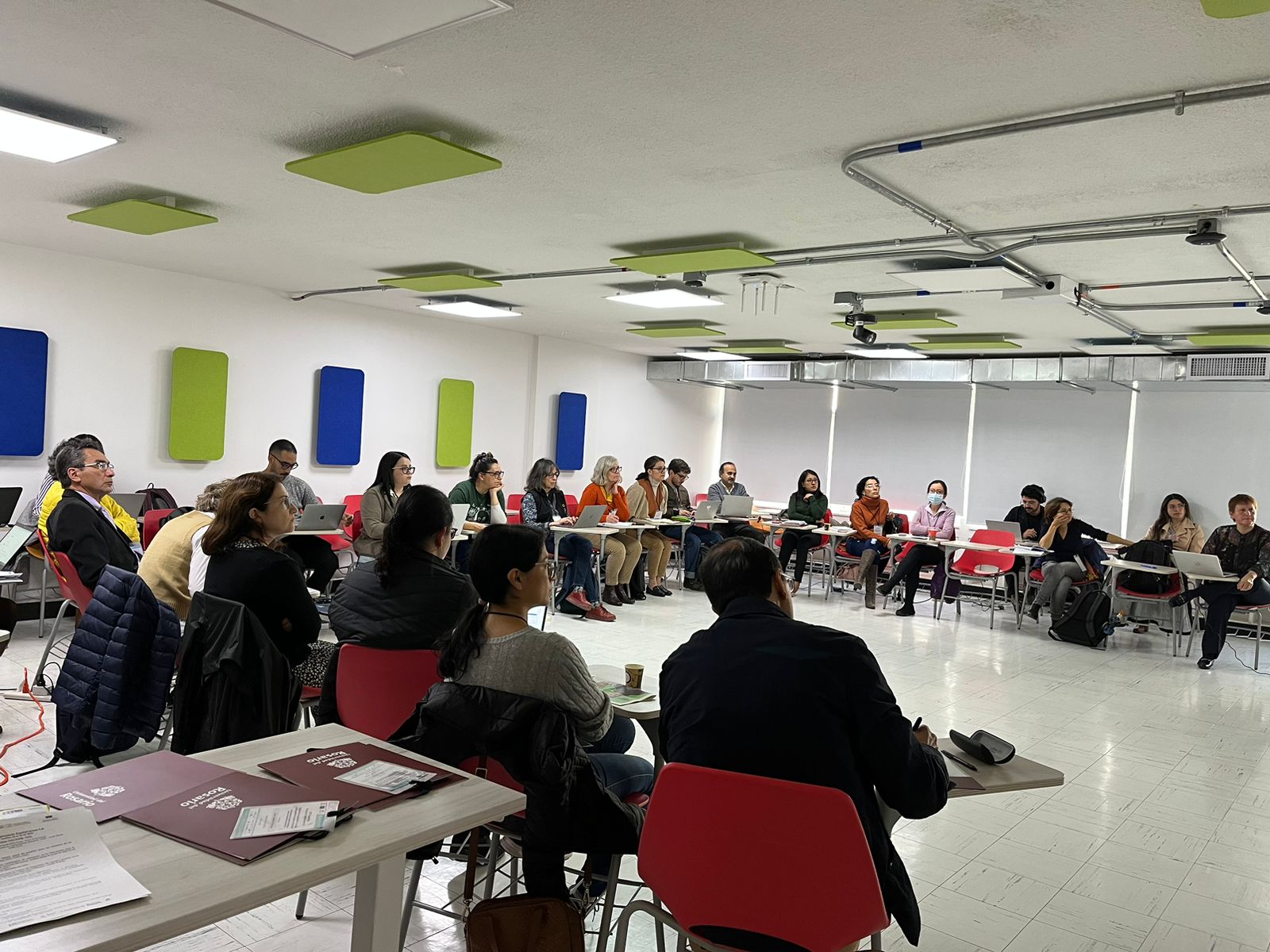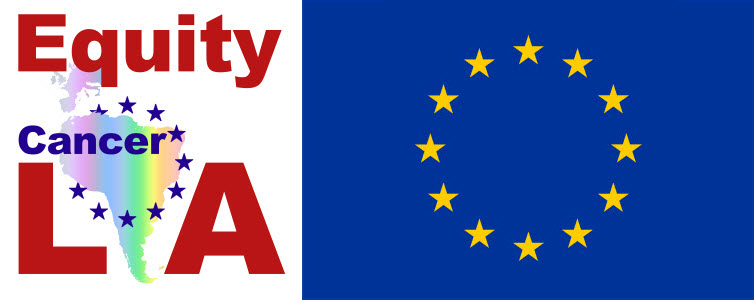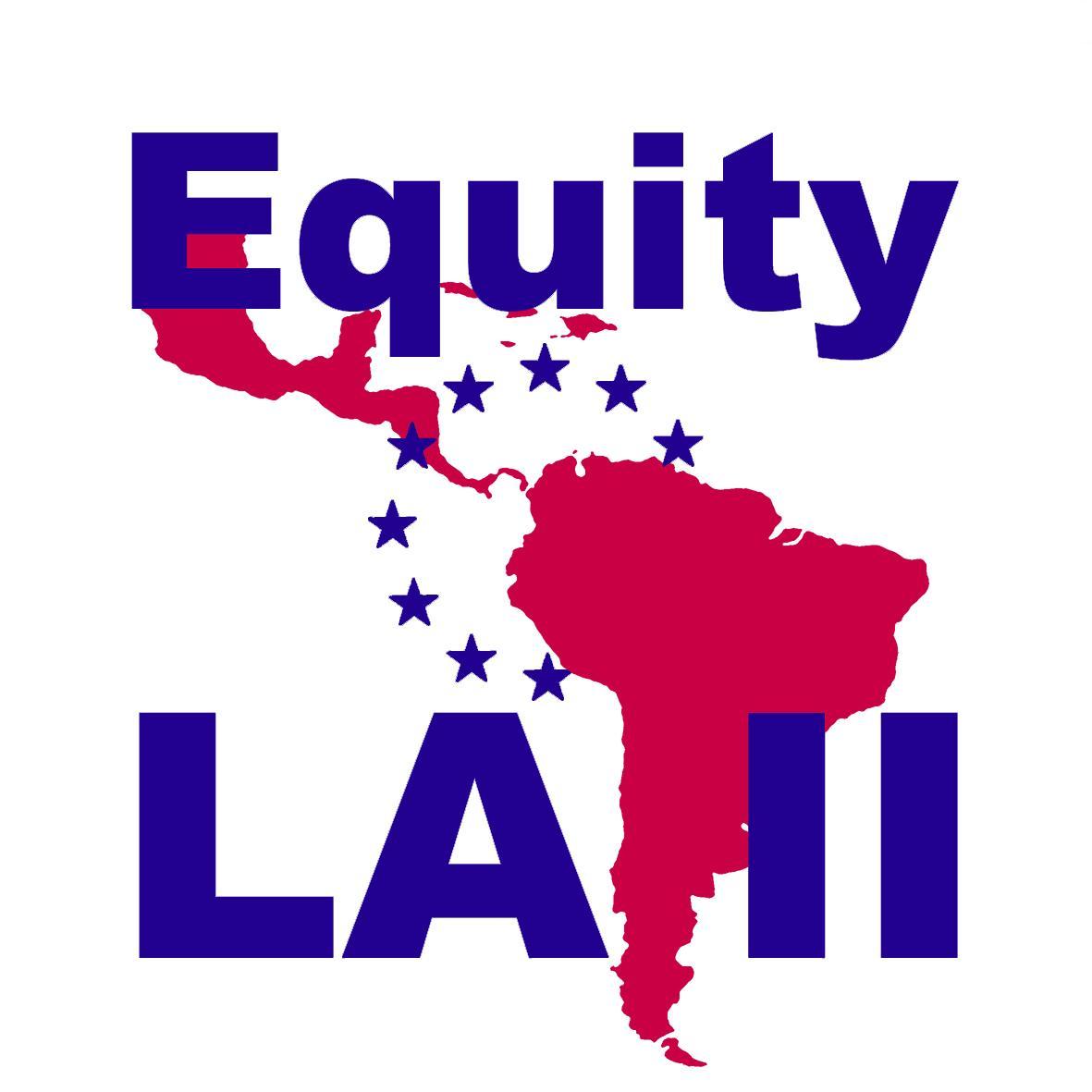Successful attendance at the seminar "Interventions to improve access to early cancer diagnosis" in Bogota
On 25 October, the seminar Interventions to improve access to early cancer diagnosis: experiences in Europe and Latin America, co-organised by the University of Rosario (Colombia) and the Consorci de Salut i Social de Catalunya (Spain), took place in Bogotá. More than one hundred participants, including health authorities, managers, health service professionals and academics attended the seminar, which at the last minute had to be made online due to a strike in the taxi sector in Bogotá. Held in the framework of the international EquityCancer-LA project, it was attended by the European Commission in the figure of Ioannis Vouldis from the Health & Cancer Mission at Health and Digital Executive Agency (HaDEA) and the collaborating institutions, University of Chile, Pontificia Universidad Católica del Ecuador, University of Copenhagen, Parc Sanitaria and the Fundació Sant Joan de Déu de Barcelona and Universidade Nova de Lisboa.
The aim of the seminar was to analyse experiences with interventions aimed at improving early cancer diagnosis, from experts in the field and progress with the development of EquityCancer-LA participatory interventions.
The seminar was opened by Salim Chalela Naffah, Director of Research at the Universidad del Rosario and continued with speeches by Edgar Silvio Sánchez Villegas, Manager of the Hospital Universitario de La Samaritana, Paula Henao, Chancellor of the Universidad del Rosario, Ioannis Vouldis, Scientific Programme Officer - Health Research at the Health and Digital Executive Agency (HaDEA).
After the welcoming remarks, Ioannis Vouldis, gave a summary of the opportunities offered by the European Union in terms of research with the Horizon Europe and EU Cancer Mission programmes and encouraged participation. Josep Maria Borràs, Director of the Catalan Oncology Plan, then highlighted the importance of strengthening early detection in contexts with difficult access to care and reviewed the principles and results of European experiences, highlighting the most relevant for the Latin American context. Carolina Wiesner Ceballos, Director of the National Cancer Institute of Colombia, then presented some strategies for improving cancer diagnosis in Colombia.
The second part, dedicated to the EquityCancer-LA project, began with a presentation by María Luisa Vázquez, Director of the Research Service of the Consorci de Salut i Social de Catalunya, who introduced the theoretical frameworks and current status of the project, the objective of which is to evaluate the contextual effectiveness of the implementation of an integrated care intervention in improving cancer diagnosis in Ecuador, Chile and Colombia. He continued with preliminary results, based on the survey of patients diagnosed with cancer in these countries, on delays and barriers to access to cancer diagnosis in Colombia, Chile and Ecuador, which Verónica Espinel, researcher at the CSC, presented. On the other hand, Maria Rubio of the Parc Sanitari Sant Joan de Déu, the analysis of the cost of cancer diagnosis in the three countries.
The seminar closed with the presentation of the participatory process of adapting care integration interventions to improve access to early cancer diagnosis and the early stages of their implementation: Amparo Mogollón, Universidad del Rosario and Mauricio O'Byrne, Local Steering Committee, in Colombia, Pamela Eguiguren, from the School of Public Health of the University of Chile and Ivana Andrea Bressan Sánchez from the Local Steering Committee and finally, Andrés Peralta from the Institute of Public Health, Pontificia Universidad Católica del Ecuador and Jacqueline Pérez from the Local Steering Committee in Ecuador who, presented the adaptations in their countries. Ingrid Vargas from the CSC closed the seminar by summarising the main conclusions.
This seminar is part of the dissemination actions of the project Improving equity in access to early cancer diagnosis in different health systems in Latin America (EquityCancer-LA), funded by the Horizon 2020 programme of the European Commission (SC1-BHC-17-2020, GA 965226). The project is developed in collaboration with Fundació Sant Joan de Déu (Spain), Universidade Nova de Lisboa (Portugal) and Københavns Universitet (Denmark) at the European level, and the University of Chile, Colegio Mayor de Nuestra Señora del Rosario (Colombia) and Pontificia Universidad Católica del Ecuador, in Latin America.
You can find the seminar programme at the end of the article.

Archivo relacionado

